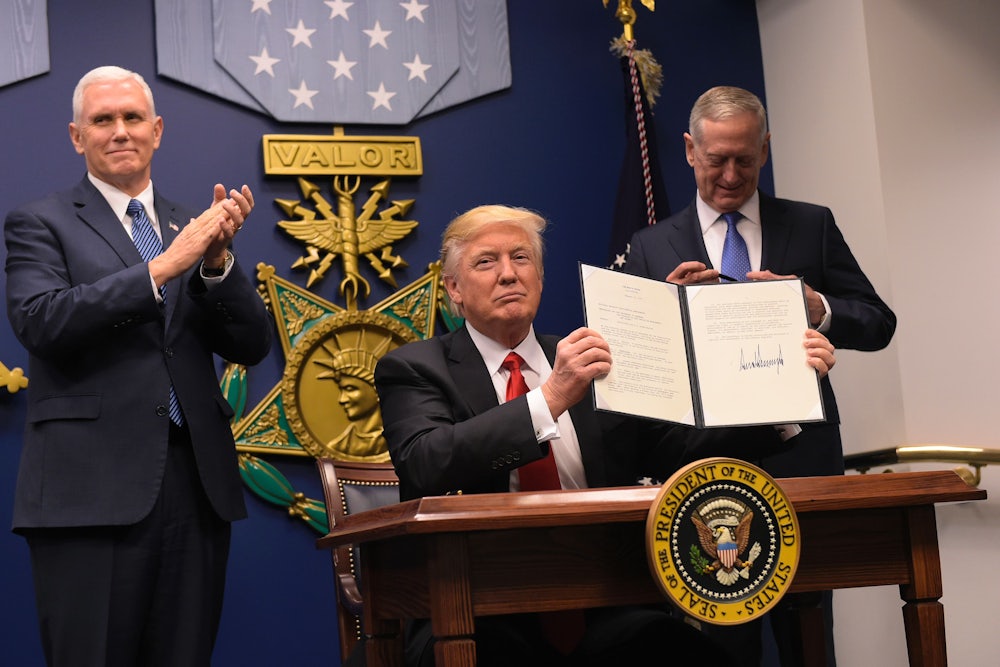There is no silver lining to Trump’s executive order temporarily banning refugees from around the world and suspending immigration from seven largely Muslim countries—Iraq, Syria, Iran, Sudan, Libya, Somalia, and Yemen. But many people appear to be taking some grim satisfaction now that the notion that the United States is an exceptional country—a uniquely humane and tolerant one—has been dropped by its president, with barely a rustle of objection from his Republican peers. As Declan Walsh reports for the Times:
Many Muslims have long viewed America’s vision of itself as hypocritical and its idealism as degraded. After years of grinding war in countries like Afghanistan and Iraq, there is a growing belief that even many Americans do not truly believe talk about America being a “shining city on the hill” that seeks to do good in the world.
“Trump has dispensed with the politeness, but that wasn’t fooling people before,” said Karl Sharro, a Lebanese-Iraqi architect and commentator who is based in London. “In being honest about these draconian measures, a lot of people will say that at least we know where we stand now.”
The ban is extremely instructive, dispelling a lot of the cant that clouds American politics. We now know, for example, that Vice President Mike Pence does not actually consider such a ban unconstitutional or even offensive, which is how he described it in 2015:
Calls to ban Muslims from entering the U.S. are offensive and unconstitutional.
— Governor Mike Pence (@GovPenceIN) December 8, 2015
We also know that Speaker Paul Ryan didn’t really mean it when he said, “This is not who we are as a party or a country.” Apparently it is:
Paul Ryan was widely praised for taking a principled stand against the Muslim ban. pic.twitter.com/cZuaxmManC
— Brian Beutler (@brianbeutler) January 28, 2017
That the U.S. will now prioritize Christian refugees over Muslim ones also belies the idea that the United States, and the Republican Party in particular, cares about religious freedom. Liberals have long suspected this was code for pushing the interests of precisely one religion, and Trump, the great clarifier of conservative thought, has made that explicit. As the U.S. begins denying entry to refugees, including an Iraqi translator for the U.S. Army, the scales have seemingly fallen from our eyes.
